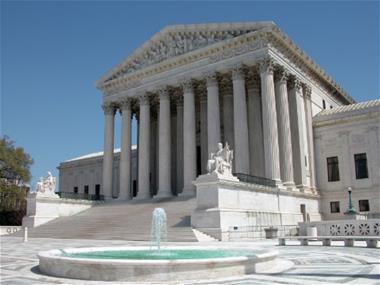
In Perez v. Mortgage Bankers Association the Supreme Court will decide whether a federal agency must engage in notice-and-comment rulemaking pursuant to the Administrative Procedure Act (APA) before it can significantly alter an interpretive rule that interprets an agency regulation. The State and Local Legal Center (SLLC) argues yes in its amicus brief, which agrees with the lower court that significant changes to an interpretation of a regulation amounts to effectively changing the regulation, which requires notice-and-comment. Local governments frequently have been surprised by interpretive rules that have changed regulations.
In 2006, the Department of Labor (DOL) issued an opinion letter stating that mortgage loan officers who work more than 40 hours a week were exempt from overtime under the Fair Labor Standards Act. In 2010, DOL withdrew the opinion letter in an “Administrator’s Interpretation” that reached the opposite conclusion. Since 1997, the D.C. Circuit’s rule has been that if an interpretive rule is definitive and an agency makes a significant change to it, the agency must first conduct notice-and-comment rulemaking.
State and local governments often regulate in the same space as federal agencies and are often regulated by federal agencies. The SLLC’s amicus brief argues that requiring notice-and-comment for significant changes to interpretations of regulations will maintain the balance between agency discretion and reliance interests that the APA was designed to protect. It also argues that allowing state and local governments to weigh in on problematic interpretations is far more efficient than state and local governments challenging them through litigation. And allowing greater state and local participation in the process will avoid, or at least limit, the risk to federalism posed by ever-expanding agency authority.
The SLLC’s brief discusses a number of examples where federal agencies have changed positions in interpretive rules. In 1993, DOL issued a series of opinion letters concluding that career firefighters who volunteered their services to private organizations had to be paid extra by whatever public entity employed them. DOL then changed its mind in 2001. And in a 2011 guidance letter, the Environmental Protection Agency disallowed wastewater discharge “mixing zones,” while regulations previously allowed them. This guidance letter was successfully challenged in the Eighth Circuit in Iowa League of Cities v. EPA.
New, Reduced Membership Dues
A new, reduced dues rate is available for CAOs/ACAOs, along with additional discounts for those in smaller communities, has been implemented. Learn more and be sure to join or renew today!
